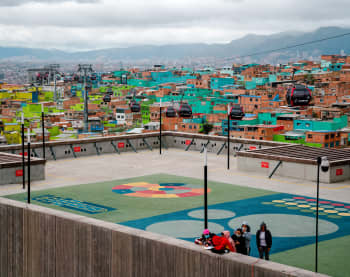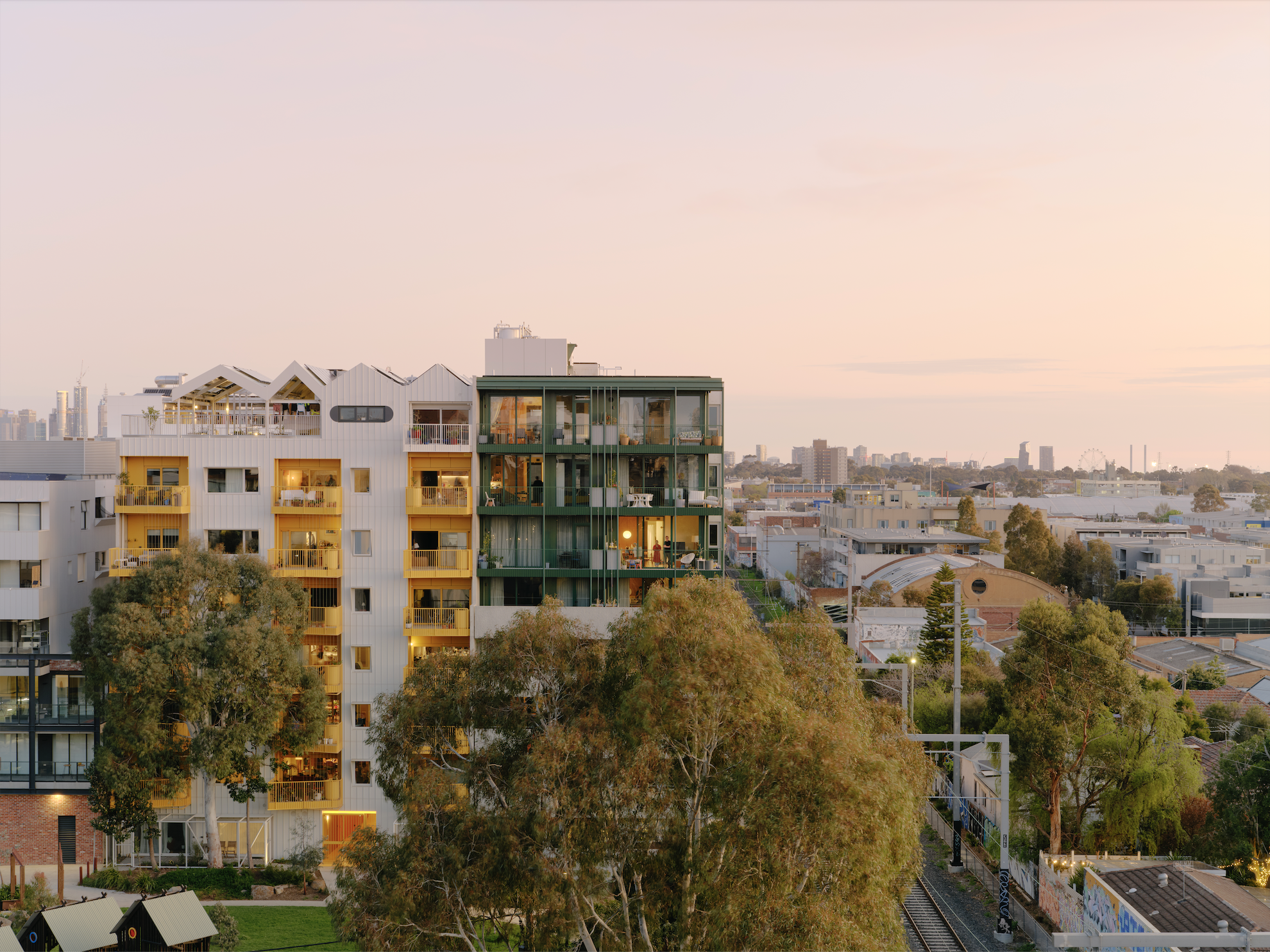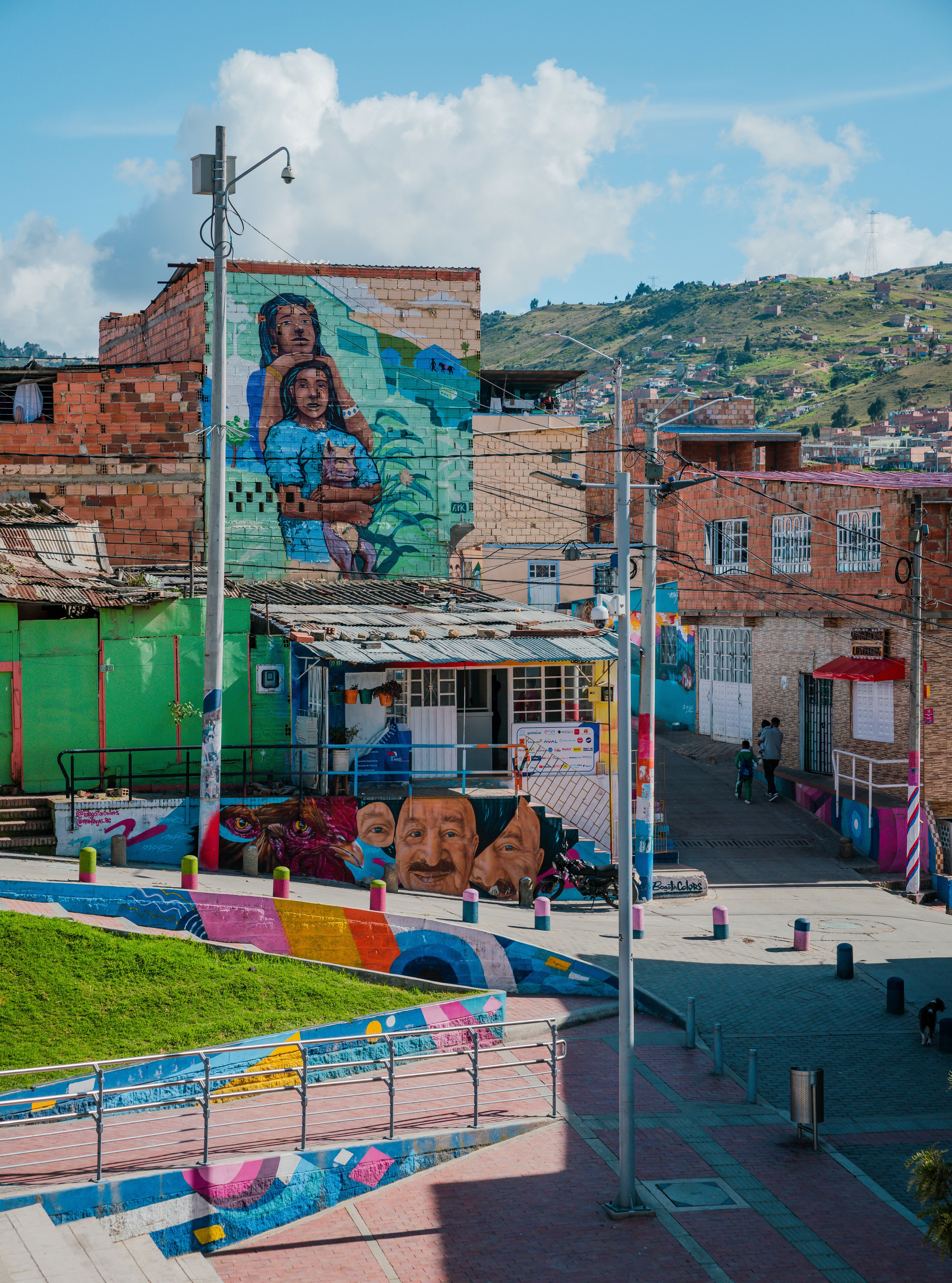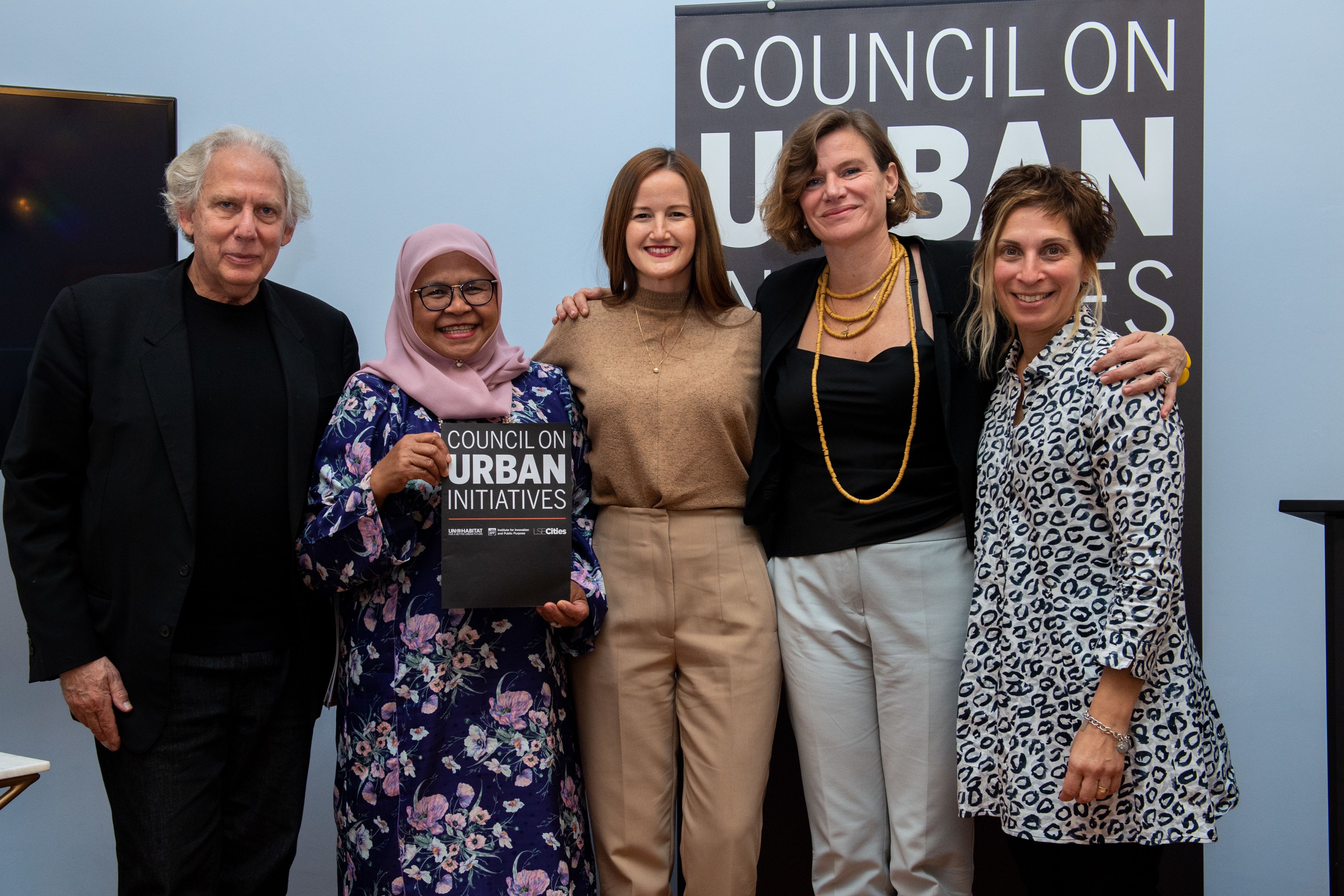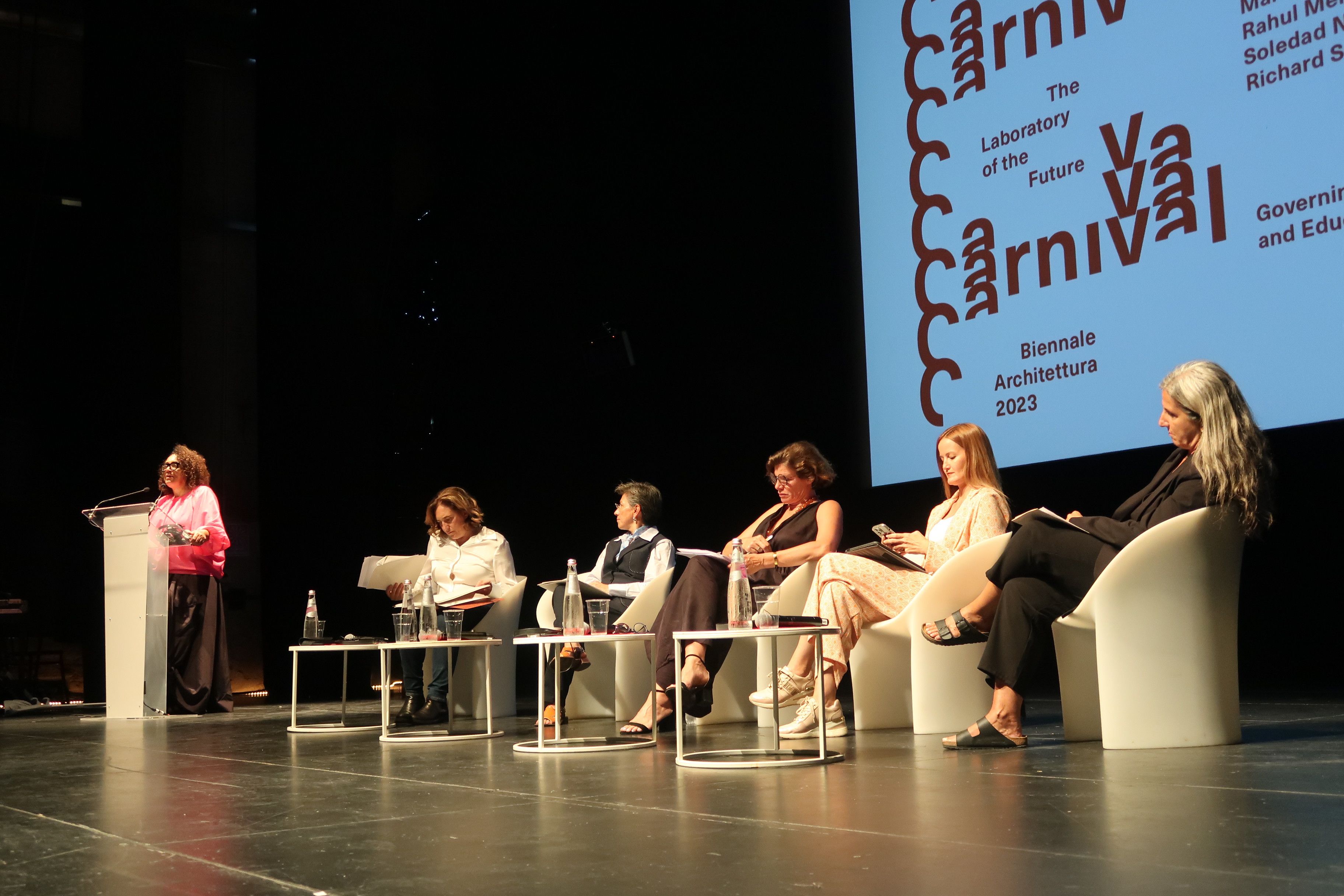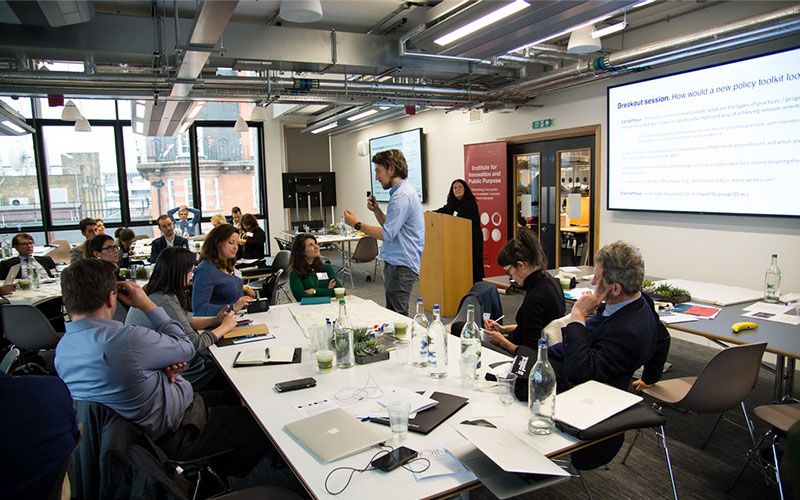Cities working together to tackle poverty, inequality and climate change
A new Council is drawing together leaders and academics from across the world to transform our cities
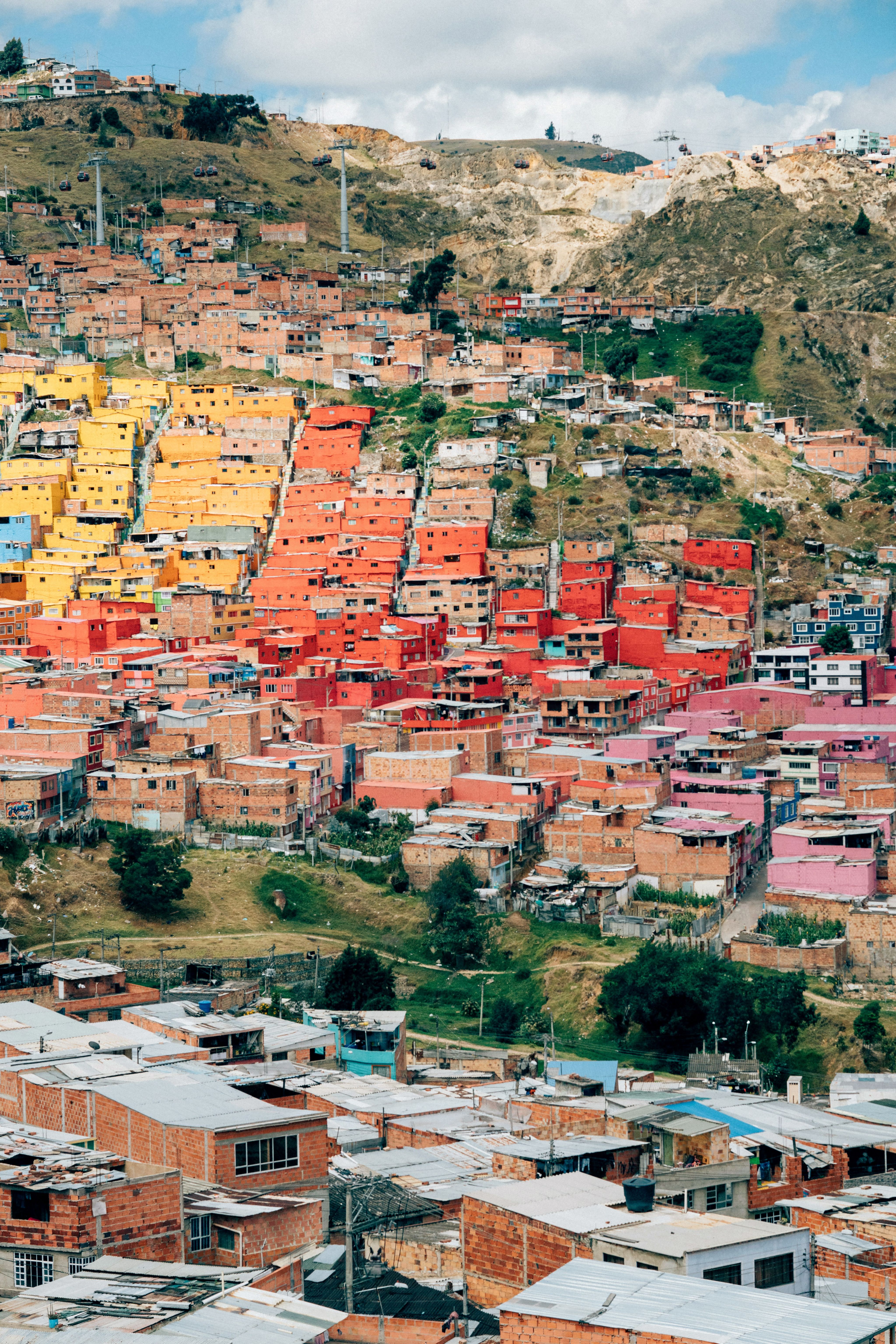
Over half of the people on earth live in cities. However, the quality of life in the city depends on individual circumstances – and the divides are growing deeper.
Studies show that one in four urban citizens worldwide – around one billion people – live in slums or informal settlements.
The health impacts of urban inequality are inescapable, even in more developed cities like London, where the borough you grow up in can reduce your life expectancy by 15 years.
The effects of the climate crisis will amplify these challenges, making it harder for vulnerable people and communities to escape poverty, as price shocks from natural disasters and agricultural production issues reverberate through our global economy.
City leaders and planners hoping to mitigate these inequalities often face additional complications, due to regulatory and financial structures imposed by central governments at a national level.
Now, a new research and advocacy platform jointly led by mayors, academics and practitioners is aiming to tackle these problems head-on and coordinate the efforts of cities pushing for a greener, healthier, fairer future.
The Council on Urban Initiatives is co-chaired by Professor Mariana Mazzucato, Founding Director of the UCL Institute for Innovation and Public Purpose (IIPP) and Professor Ricky Burdett, Director of LSE Cities. UN-Habitat is the third organising partner.
By engaging wider audiences, highlighting the barriers to progressive transformation, and exploring and promoting new approaches, the Council supports and advocates for those directly responsible for the most important changes in our cities.
“Cities and local governments have the capacity and leverage to give direction to local economies and urban development by building ‘symbiotic partnerships’ between communities, residents and the private sector. Consequently, their role in tackling poverty, inequality and climate change is fundamental.”

Cities can lead the way
One of those leading the work of the Council is Isadora Spillman-Schappell, Cities Programme Manager at the UCL Institute for Innovation and Public Purpose.
“It’s clear that to actually reach a green, just and healthy future, we need to deeply engage with the work happening at the local level,” says Isadora.
“65% of the Sustainable Development Goals (SDGs) targets can’t be achieved without the engagement and efforts of local governments.
“Cities are really important areas for experimentation and innovation – but if we don’t have platforms like the Council to capture these learnings and bring them to the global stage, then this brilliance can go unexplored and uninvestigated.”
In most countries, mayors and city leaders occupy a unique position among elected officials. They are often both closely attuned to the needs of their constituents and communities, and able to identify and implement radical solutions to issues affecting millions of people.
However, their actions are often constrained by regulatory and financial models dictated at the national level by governments who are slow to recognise and respond to regional opportunities for transformative action.
Building strength and resilience through partnership
The Council works to advance both theory and practice and has been focusing its effort on housing challenges.
The new working paper 'The Right to Housing: A Mission-Oriented and Human Rights Based Approach' by Professor Mazzucato and Council member Leilani Farha embeds the accountability of human rights into the design of housing for all policy approaches.
One of the other ways the Council assists city leaders is through surfacing examples of symbiotic relationships between local government and different stakeholders that have facilitated positive change.
“It’s about new partnerships involving both academics and practitioners. It’s really important for people on the ground to collaborate with academics and think in new ways.
“Then there’s also the kind of symbiotic partnership that’s happening between the private sector, government and civil society,” says Isadora.
The Council’s recent report, ‘Housing and the city – case studies of integrated urban design’, provides strong examples of these different kinds of partnership in action. Each case study in the report contains multiple teachable instances of how different kinds of stakeholder can leverage their position to drive change.
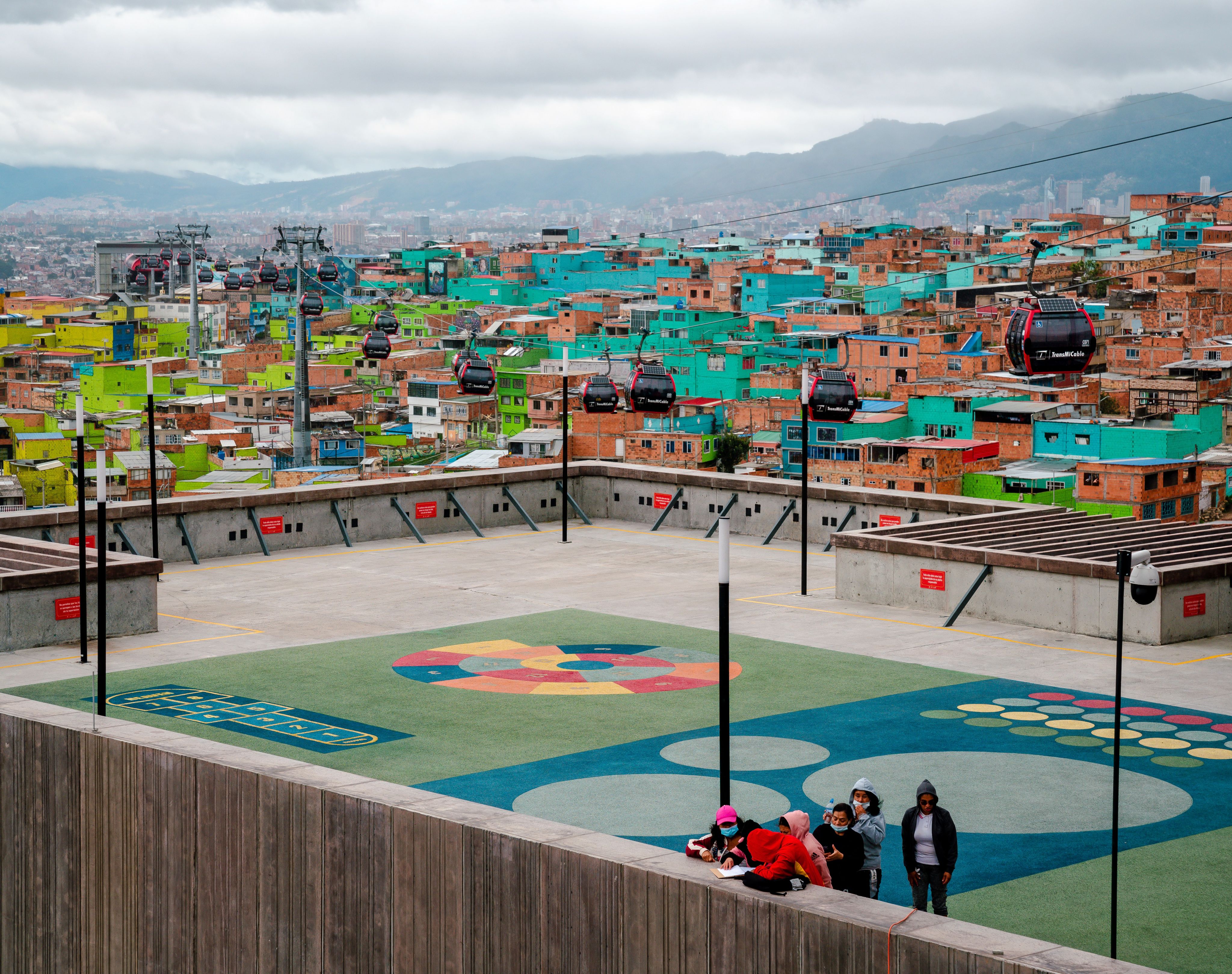
Nightingale ParkLife (Austin Maynard Architects) and Nightingale Evergreen (Clare Cousins Architects) apartment buildings and the surrounding urban context in Melbourne. Image credit: Tom Ross
Nightingale ParkLife (Austin Maynard Architects) and Nightingale Evergreen (Clare Cousins Architects) apartment buildings and the surrounding urban context in Melbourne. Image credit: Tom Ross
Bogotá, Colombia. Image credit: Ryan Bellinson
Bogotá, Colombia. Image credit: Ryan Bellinson
In Melbourne, private property developers and architects joined forces to provide sustainable affordable housing in one of the least affordable housing markets in the world. Through their not-for-profit entity, Nightingale Housing, they have built over 400 new homes, with another 634 homes either planned or currently under construction.
These innovative homes are sold to residents at cost, with a percentage of the new builds protected for key workers, minority groups and housing associations.
Meanwhile in Bogotá, the Plan Terrazas project has seen local government working more closely with residents, reimagining their prohibitively expensive and complicated planning application process to combat a proliferation of unregulated and unsafe informal construction activities.
By providing grants and allowing residents to apply for permits to recognise and upgrade their existing informal constructions, Bogotá city planners have improved quality of life and housing, empowering their communities and alleviating poverty.
“We haven’t been able to look from a pedagogical perspective at how we train the architect to design for transitions. This is a whole different design approach – it is not linear; it is iterative in a much more random way than design thinking as we see it.”
The long road to urban transformation
The Council advocates iterative and incremental design approaches. A particularly instructive case study from the report discusses Charkop, Mumbai, and the success of their cross-subsidised housing model – two decades after it was abandoned by the World Bank.
Isadora explains: “What’s quite interesting about Charkop is the way it was considered a failure in the 1980s - but then evolved, becoming a vibrant community where people can both live and work, with businesses and residential areas integrated into the same units.
“It’s been reevaluated as a really interesting model of iterative design - led by the community and owned by the community. The informality and incrementalism are what’s created this thriving neighbourhood.”
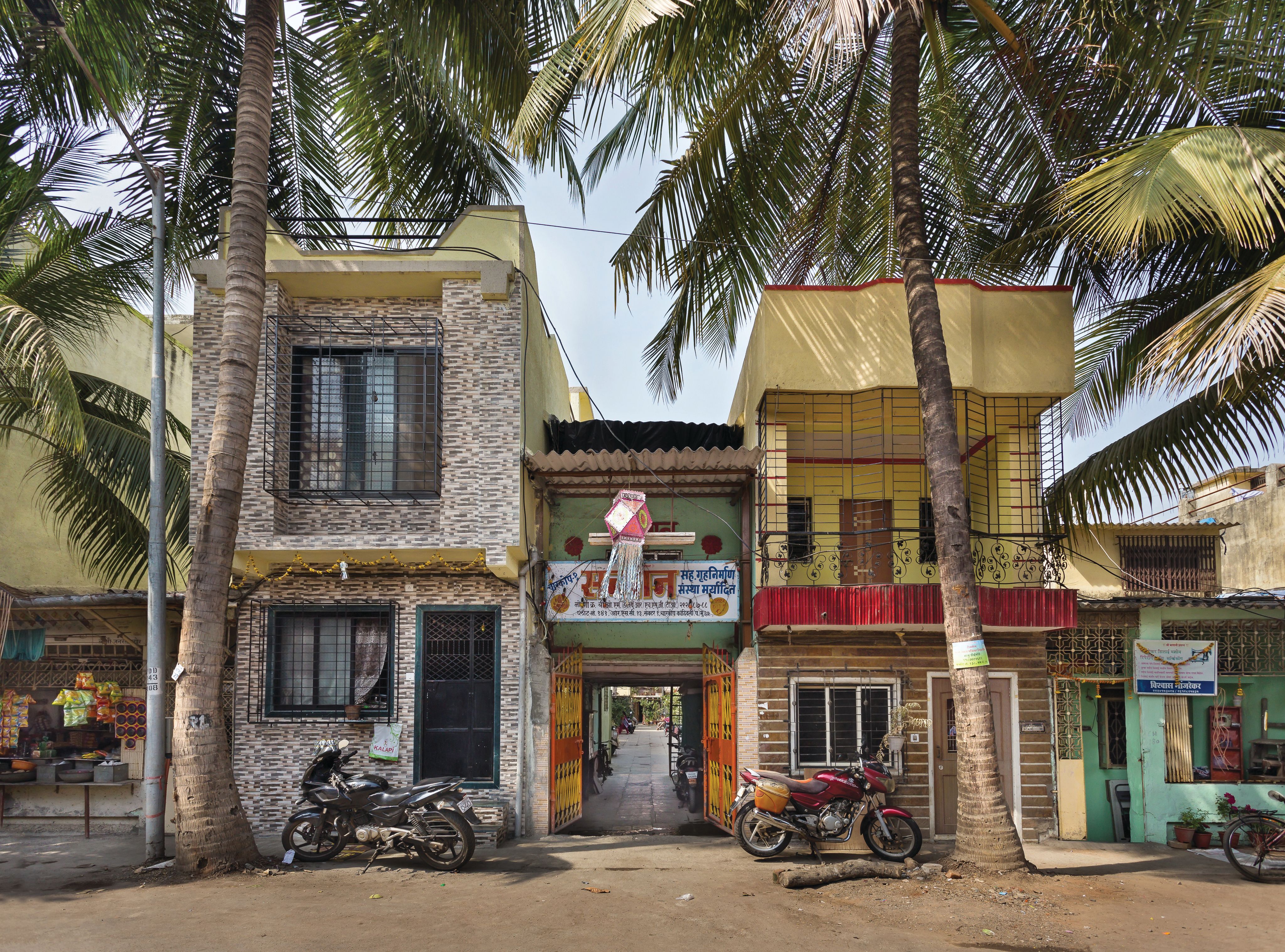
Bringing big ideas back home
Looking ahead, Isadora outlines several outputs that will further increase the impact and influence of the Council, including a new paper from members Professor Dan Hill, Director of Melbourne School of Design, and co-chair Professor Mariana Mazzucato.
“This new piece looks at how to foreground sustainable housing, and the demand and supply-side solutions we need to actualise sustainable housing as a common good.”
Isadora also discusses plans to harness the Council’s resources to create greater local impacts in London.
“Through our knowledge partnership with Impact on Urban Health, we are exploring how CUI's research and the wide-ranging expertise of Council members can strengthen how they fund and partner with others to address complex health issues – like housing – that affect minoritised communities Lambeth and Southwark.
“We can have these big ideas with international impact, but can we also have an impact in a neighbourhood in London? Can we make sure that our work doesn’t just sit in the academic institutions, but also reaches and involves the local community?”
Putting new tools in the right hands
Isadora explains how the mix of stakeholders represented at the Council – and their engagement with its work – could help accelerate just and sustainable urban change.
“There are these amazing thinkers on the council...it’s a really dynamic, vibrant group.
“We’ve heard from Council members that it’s really useful to have our research documents and case studies with new ways of thinking, that they can take into their own work.”
This innovative collaborative approach was clearly evidenced last year at the Council's co-hosted symposium at La Biennale di Venezia. Alongside co-chairs Professor Ricky Burdett and Professor Mariana Mazzucato, the event’s panel included the mayor of Bogotá, Claudia López, and the deputy mayor of Naples, Laura Lieto.
“I think that’s also where the influence at the city level comes in... having people like the mayor of Bogotá, the mayor of Barcelona, the mayor of Mexico City sitting on the Council and hearing these ideas that they’re then able to take back into their own work.”
Council co-chairs Professor Ricky Burdett and Professor Mariana Mazzucato with UN-Habitat Executive Director Maimunah Mohd Sharif and Council members Soledad Nunez and Leilani Farha. Image credit: Kirsten Holst
Council co-chairs Professor Ricky Burdett and Professor Mariana Mazzucato with UN-Habitat Executive Director Maimunah Mohd Sharif and Council members Soledad Nunez and Leilani Farha. Image credit: Kirsten Holst
Lesley Lokko, Mayor Ada Colau, Mayor Claudia Lopez, Professor Mariana Mazzucato, Soledad Nunez and Laura Lieto at the CUI Venice Biennale Event. Image credit: Isadora Schappell
Lesley Lokko, Mayor Ada Colau, Mayor Claudia Lopez, Professor Mariana Mazzucato, Soledad Nunez and Laura Lieto at the CUI Venice Biennale Event. Image credit: Isadora Schappell
“We can have these big ideas with international impact, but can we also have an impact in a neighbourhood in London? Can we make sure that our work doesn’t just sit in the academic institutions, but also reaches and involves the local community?”

Council on Urban Initiatives: Organising Partners
UCL Institute for Innovation and Public Purpose
The IIPP aims to develop a new framework for creating, nurturing and evaluating public value in order to achieve economic growth that is more innovation-led, inclusive and sustainable. Our work feeds into innovation and industrial policy, financial reform, institutional change and sustainable development.
LSE Cities
LSE Cities is an international centre that investigates the complexities of the contemporary city. It carries out research, graduate and executive education, outreach and advisory activities in London and abroad, and investigates how complex urban systems are responding to the pressures of growth, change and globalisation.
UN-Habitat
The UN-Habitat’s vision of “a better quality of life for all in an urbanizing world” is bold and ambitious. UN-Habitat works with partners to build inclusive, safe, resilient and sustainable cities and communities, and collaborates with governments, intergovernmental, UN agencies, civil society organizations, foundations, academic institutions and the private sector.
Knowledge partner: Impact on Urban Health
Impact on Urban Health is a place-based funder, focused on improving health in inner-city areas by understanding and changing how inequalities impact our health. Rooted in the London boroughs of Lambeth and Southwark, it invests, tests and builds understanding of how cities can be shaped to support better health.
About the author
Isadora Spillman-Schappell
Cities Programme Manager, UCL Institute for Innovation and Public Purpose
Isadora leads the work on the Council on Urban Initiatives, a partnership between UN-Habitat, LSE Cities and IIPP, advocating for the power of cities to promote systemic change to achieve the goal of the green, just, and healthy city focusing on their public value and spatial potential. Isadora holds an MPA in Innovation, Public Policy and Public from the UCL Institute for Innovation and Public Purpose and a BA in Government from Wesleyan University.
Learn more about public policy innovation and public value
UCL's Innovation, Public Policy and Public Value MPA teaches the dynamic skills required to confront the grand challenges of the 21st century. Our students are equipped to understand the explorative and risk-taking processes that structural change, innovation, and socioeconomic transformation require.
Story produced by All Things Words
© UCL The Bartlett 2024


